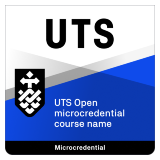This course is delivered in a scheduled format over 8 weeks (40 hours of learning in total). Each week, participants will attend an online session where they will have the chance to apply what has been learned, ask questions and hear from other participants who are taking the course.
The scheduled Zoom workshops are led by the course facilitator and will be conducted weekly on Thursday evening from 5.30pm throughout the course.
All learning materials including interactive, preparative content will be made available in self-paced online modules.
The following topics will be covered during the course:
- Biology basics and cell structure organisation
- Eukaryotic cell and DNA replication
- Expression of the genetic code
- OMICS: Studying the totality of genes, transcripts and proteins as a whole
- Introduction to the manufacturing of solid dose medications
- Principles of pharmacokinetics and pharmacodynamics
- Manufacturing of biotech products
- Mitigating common sources of contamination.
Course delivery
- The webinar sessions for this course will be delivered on Zoom – the meeting link will be provided to enrolled participants via Canvas and email.















